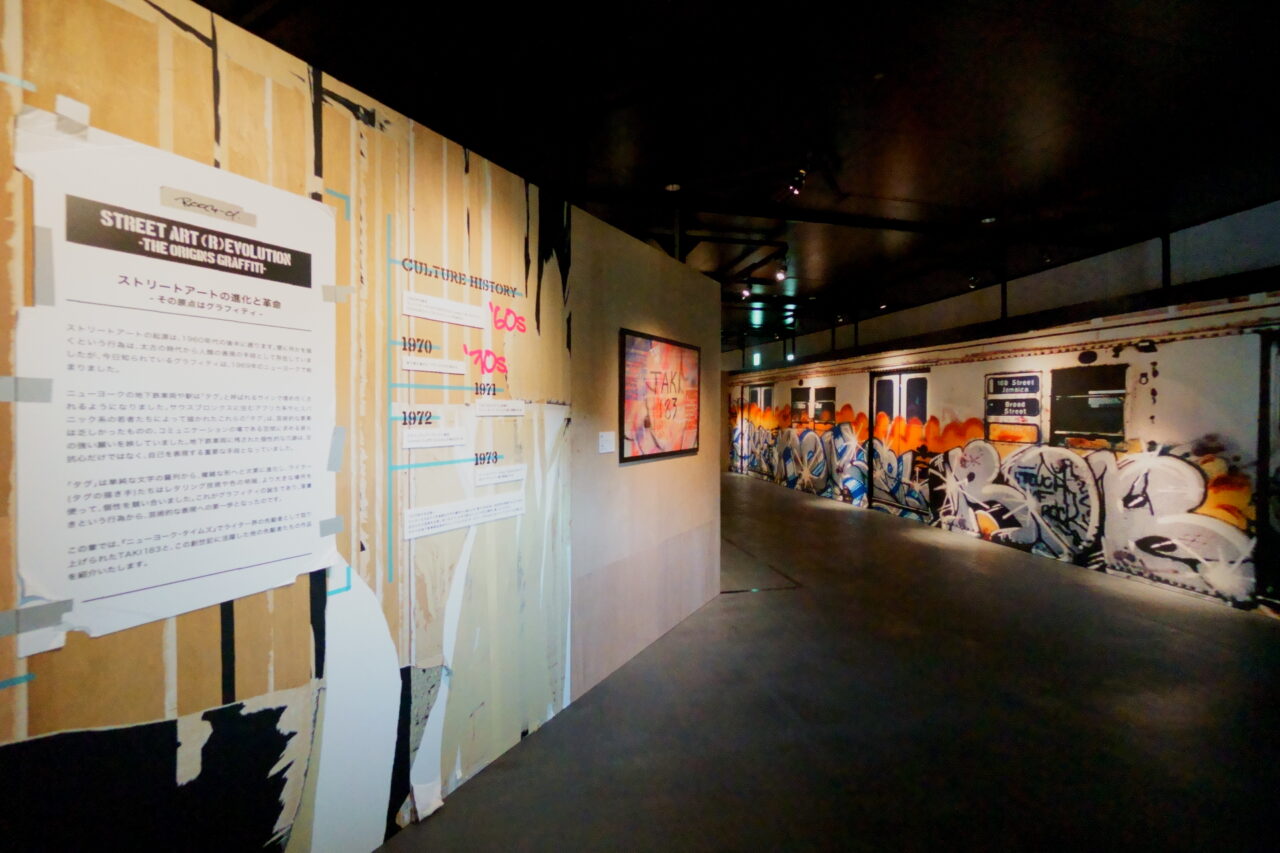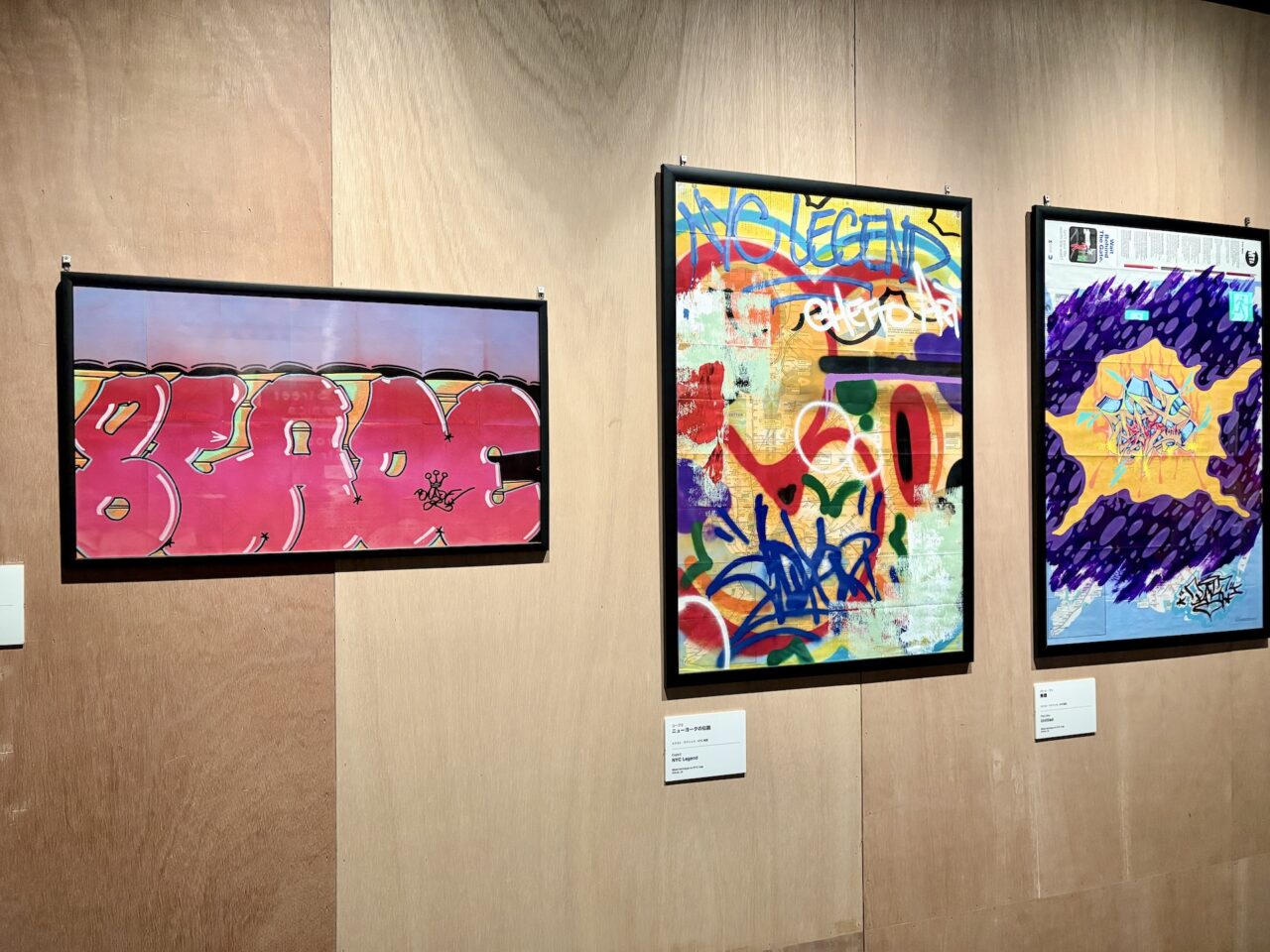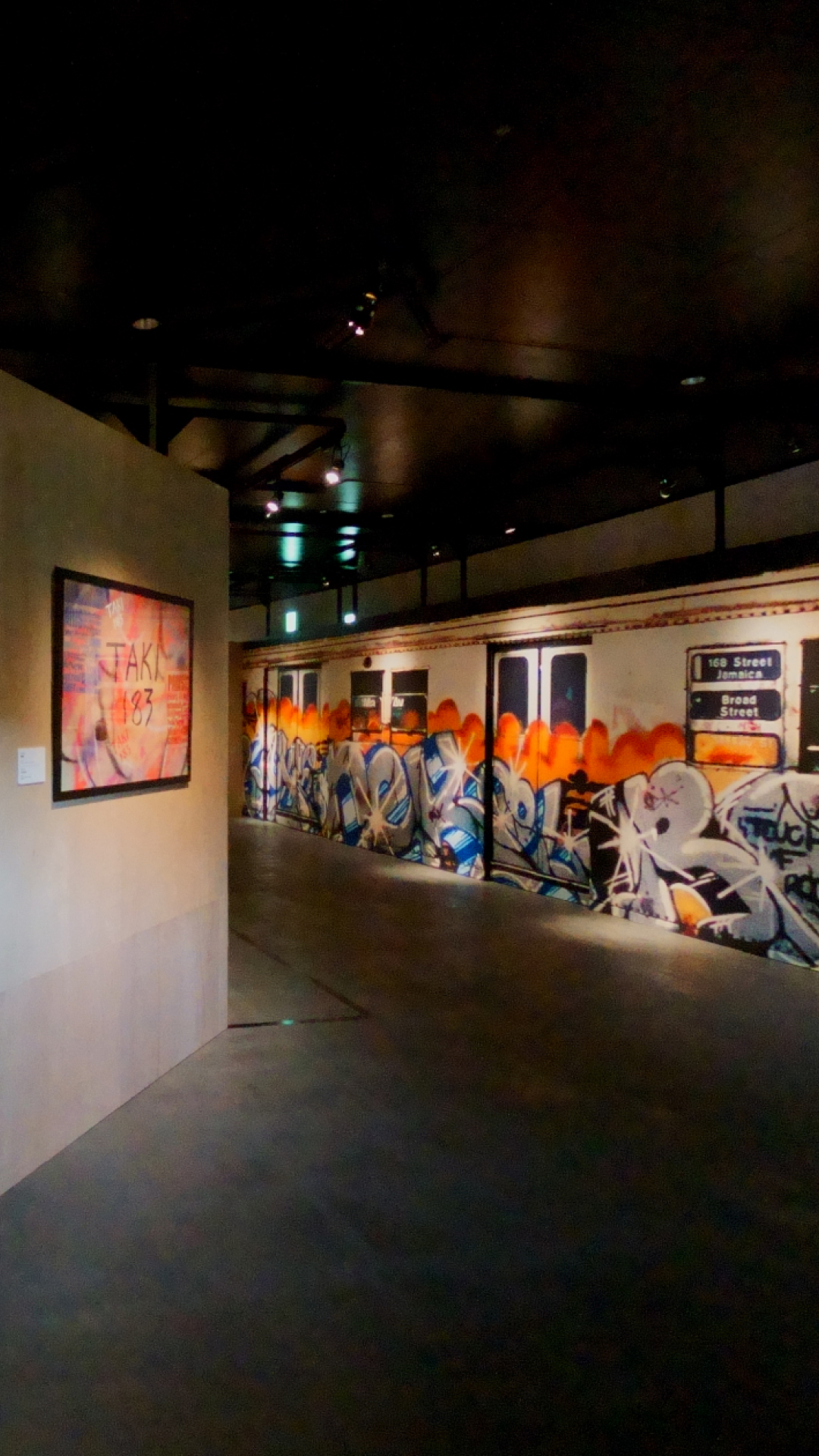INDEX
The Origins of Graffiti Art: A Form of Self-Expression for New York’s Youth
This exhibition is organized into about six sections, allowing visitors to follow the evolution of street art in roughly chronological order. Featuring 50 artists and approximately 100 works, the exhibition is quite extensive. It’s unfortunate that I can’t touch on every artist due to the length of this article, but below, I’ll highlight key points that seem to be particularly important for understanding the exhibition.

First, let’s look at the origin of it all: the “tag” born in New York in 1969. It was something like a sign, more art-like than actual art, drawn on subway cars and stations. I personally understood it as something similar to “I’m here!” written on tourist spots. However, this tag, which was a form of self-expression, began to symbolize territory among New York’s youth, evolving into an art battle where they competed with brighter colors and more intricate designs. This is when it started being called “graffiti art.” At the beginning of the exhibition, you can see works by TAKI183, who is known as one of the pioneers of tagging. Although it was later produced as a canvas artwork, the tag itself is simply something that was “just drawn.”

What’s particularly interesting are the early works of graffiti art at the beginning of the exhibition. Each piece is painted on a subway route map, similar to the free pamphlets you find at stations. With the roots of this art being in the “underground” nature of public spaces like the subway, the route maps were used as a medium for expression that wouldn’t be considered illegal. By the way, among the artists who came to Japan for this exhibition, some brought subway route maps from their own countries and used them as business cards, tagging them in the process. This episode really highlights how the act of tagging oneself and the local community lies at the core of graffiti as a creative activity.























